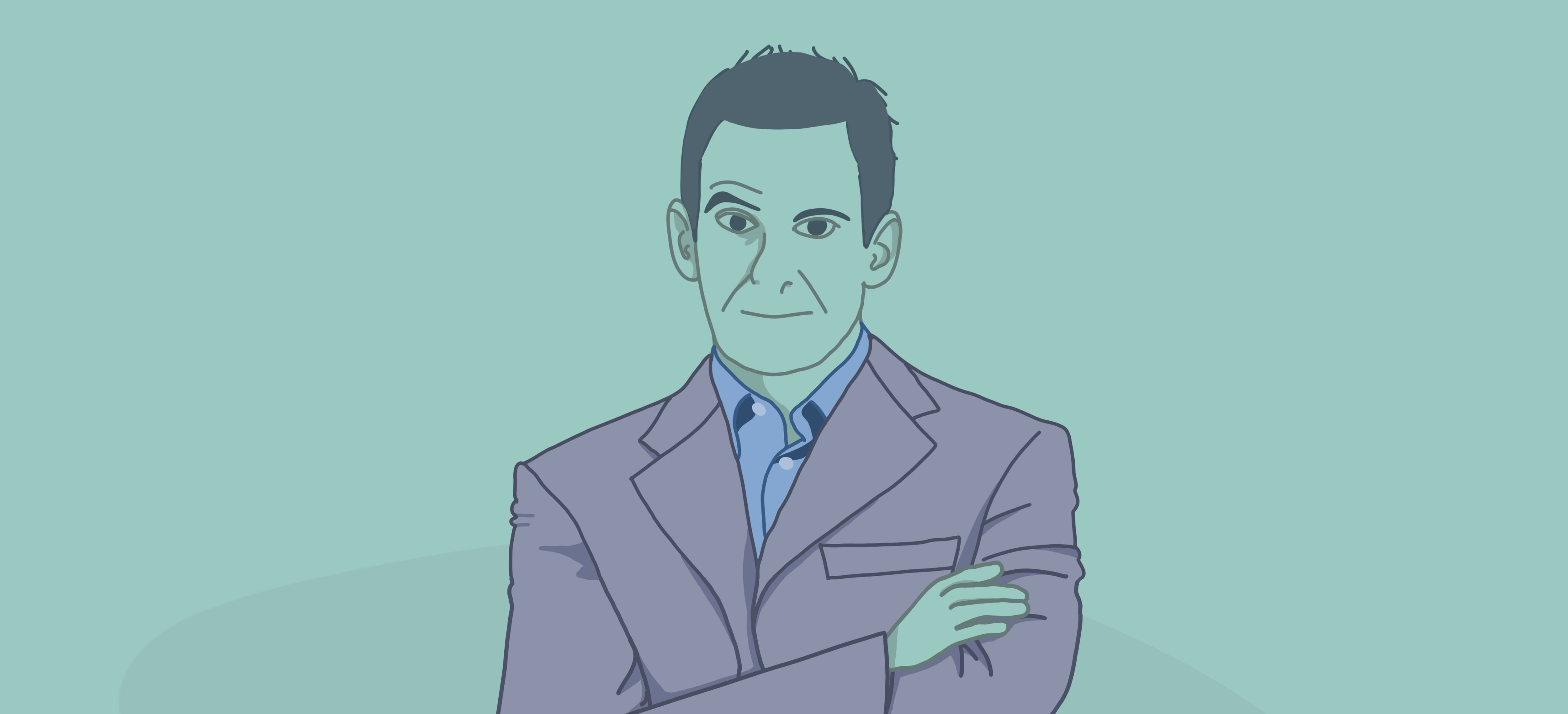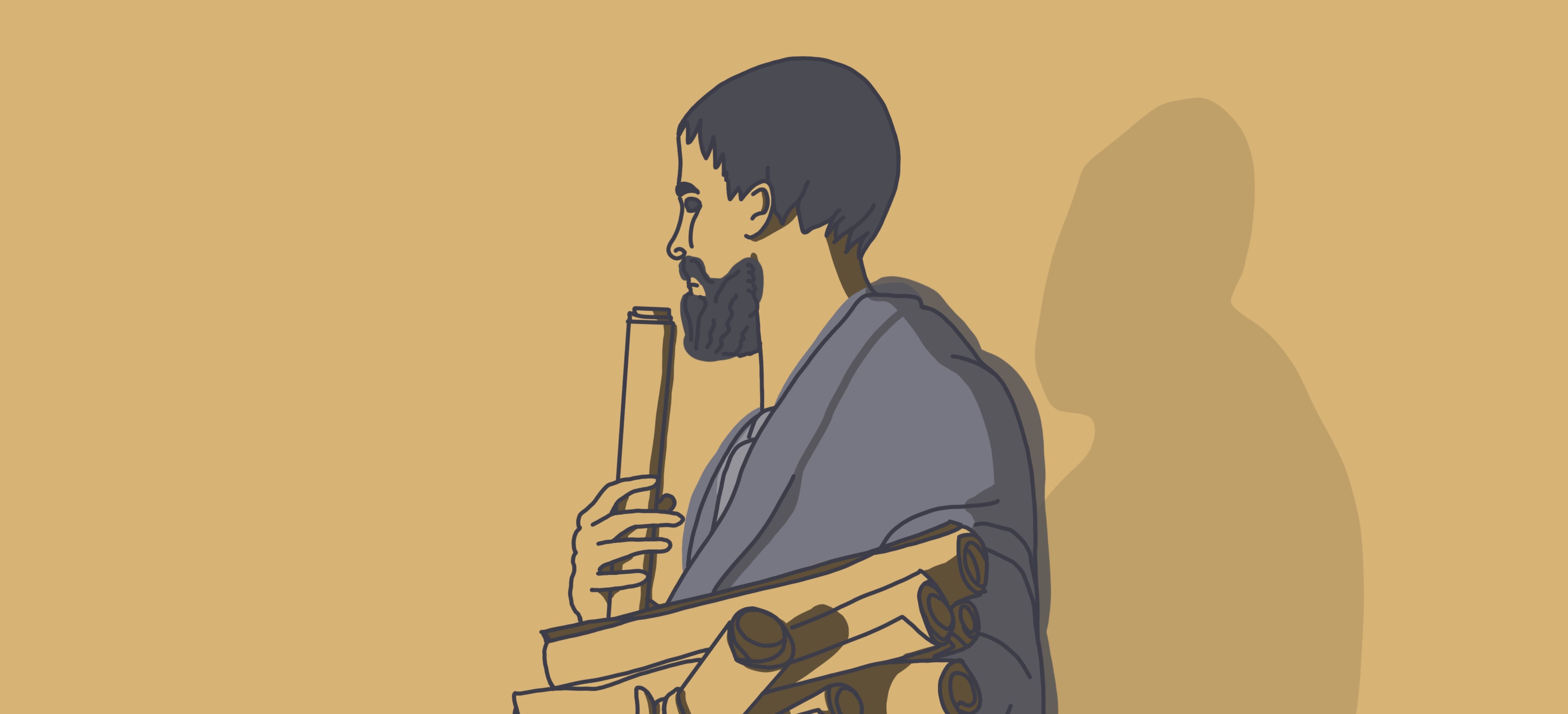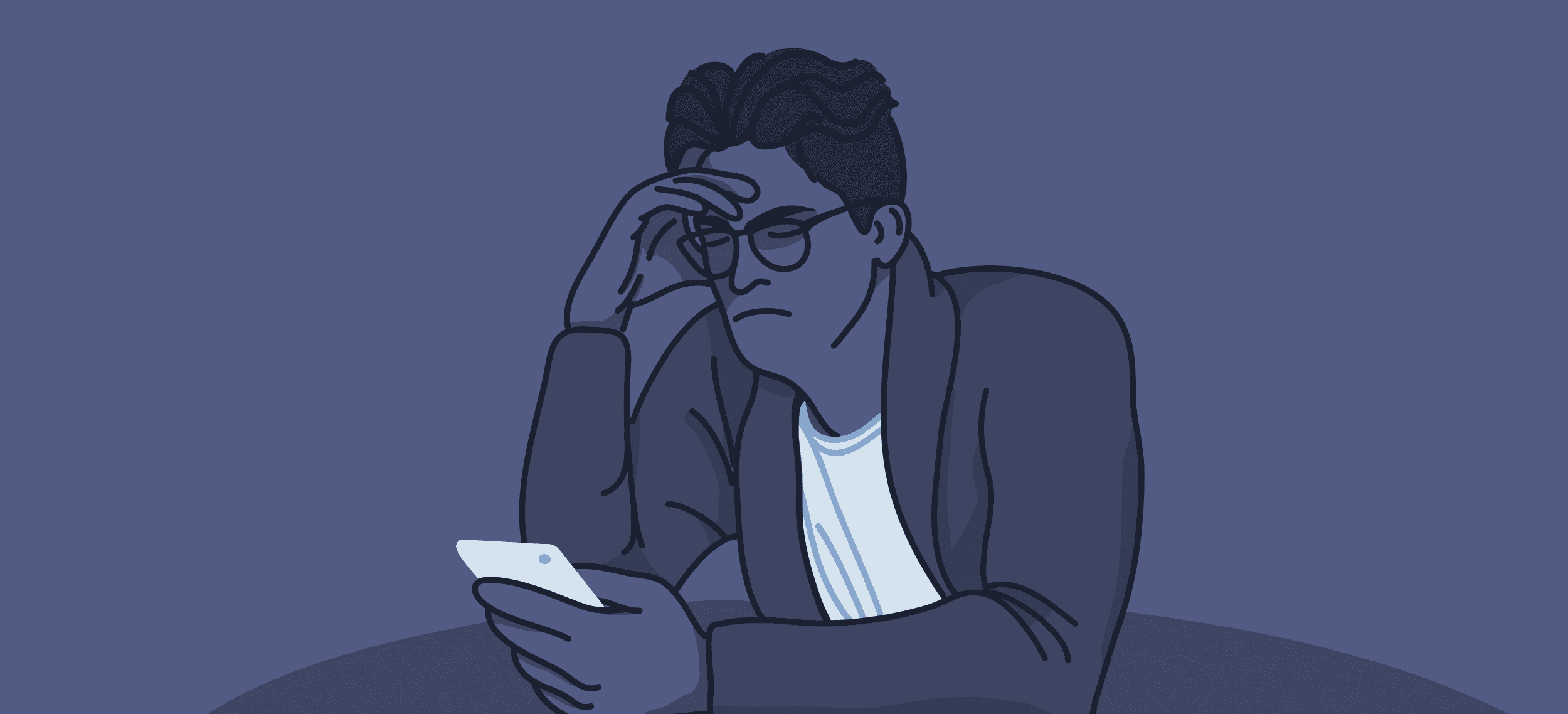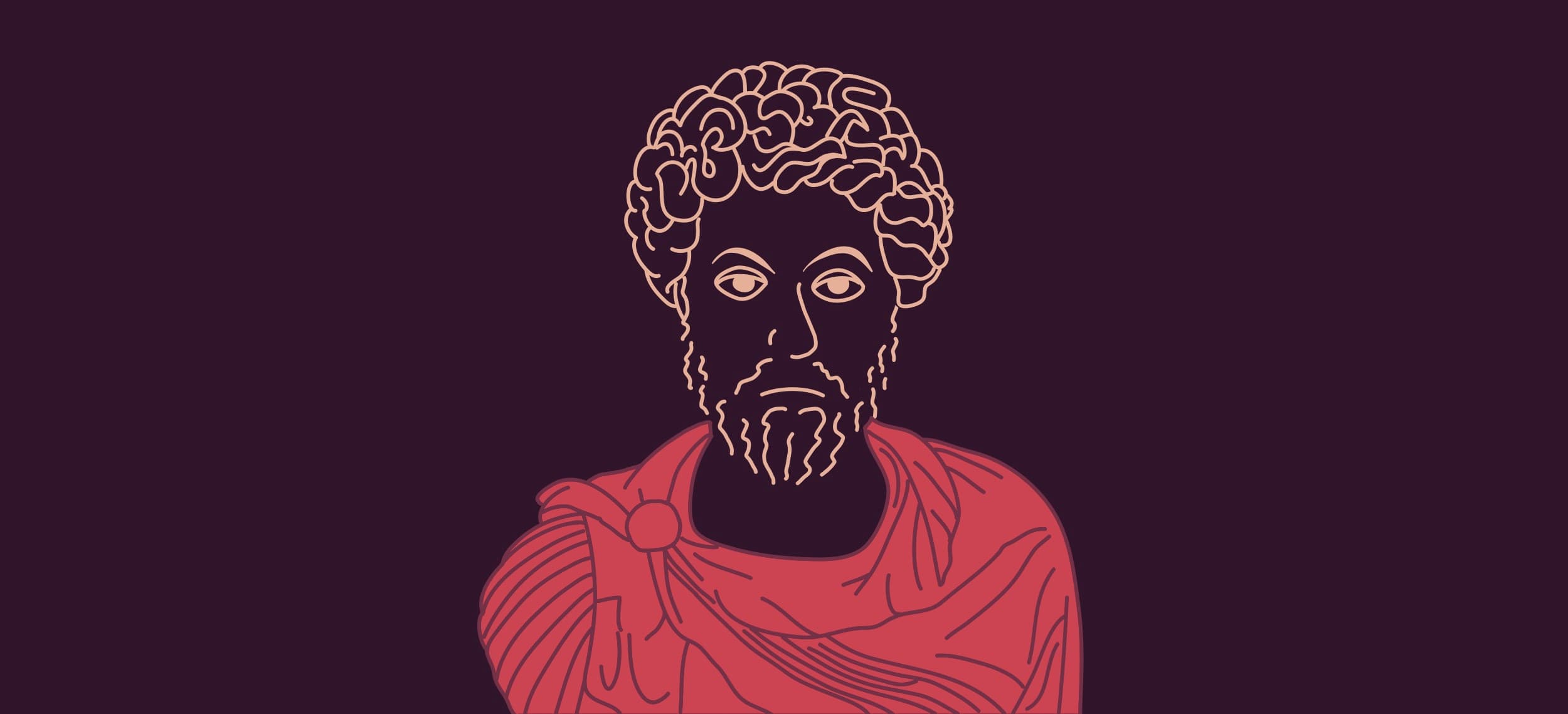Free Will Doesn’t Exist
We can't control our choices because we can't control who we are and this changes everything.

It seems we have control of our actions. It seems we make our own choices. It seems we choose our beliefs. It seems we can think about what we want, when we want.
It seems everything we do is of our own free will and this all seems quite obvious.
But there does exist the opposite belief that we don’t have free will to choose all those things ourselves and rather our thoughts, beliefs, choices, and actions are determined only by a result of previous causes that could not have resulted in any other outcome. This philosophical belief is called determinism.
I learned about determinism from Sam Harris and my first reaction was no way that’s even close to being right, of course we have free will. But after listening to his arguments and doing my own research on determinism, I can’t help but be convinced it’s true.
This realization had such a profound effect on me it has fundamentally changed the way I think about myself, other people, and the world around me.
The following is an examination into determinism versus free will, thought exercises to illustrate the lack of free will in our thoughts, beliefs, choices, and actions, and finally the implications of it in our daily lives and society.
Free Will vs Determinism
Determinism is the philosophical belief that any thought you have, belief you uphold, choice you make, and action you take is determined by a chain of previous causes that could not be otherwise because of those causes.
Free will, on the other hand, is the belief we have the unimpeded ability to control our thoughts, choose our beliefs, make choices, and take actions between different possible options. The key question that differentiates determinism and free will is are you capable to have done otherwise?
Sam Harris did a great thought exercise on the Joe Rogan Experience to illustrate the difference. It goes like this.
Think of a city - any city in the world. Now say it out loud.
You could have chosen any of the hundreds of cities you know the name of, but you chose that one. Some other cities might have run through your head right before you answered, but there were hundreds that didn’t even occur to you.
With the hundreds of possible options, this seems like an example of one of the freest choices you can make. But if we go back in time right to the moment where I first asked you to say the city out loud, could you have chosen a different city?
If you examine your thought process leading to your city of choice, you’ll find reasons that caused you to choose that city - fond memories, something you saw today, or simply how you were feeling.
In a universe with free will, you’d be capable of using those inputs to choose one city and you could have easily chosen a different city. But in a deterministic universe, we could go back 1,000 times right to the start of this thought exercise and you’d go through that same exact thought process and you’d choose that same city every time.
That’s the difference between free will and determinism.
Arguments for Determinism
The following are thought exercises to reveal how much of who we are, our thoughts, beliefs, choices, and actions are the product of causes rather than choices from our own free will.
We didn’t choose our genetics or upbringing
Suddenly, we’re alive. And it wasn’t by choice.
We didn’t get to choose the country or city we were born and raised in. We didn’t choose the culture. We didn’t choose the year.
We didn’t get to choose our genetic code, how tall we’d become, how attractive or unattractive we are, the sound of our voice, the color of our skin, the language we speak, our natural talents, our gender or sex, or the diseases we’re susceptible to.
We didn’t get to choose our parents, how much or how little money they had to raise us with, their relationship between each other, the religion, values, and politics they ingrained in us, or how much or how little they pushed us in sports, music, or academics.
How our parents raised us (or the people who did), heavily influence our identity, character, values, beliefs, and future.
If you’re a parent, you already know this is true or you wouldn’t have read all those books or watched all those videos on how to become a great parent. You wouldn’t have tried as hard as you did to create the best possible life for your children if you knew it wouldn’t make a difference.
I want you to think about your upbringing. How much has it made you who you are today? How much of that was your choice? How much of that was determined and out of your control?
We don’t choose our own thoughts
As the part of us that feels closest to our sense of free will, our thoughts seem to be the element we have complete control of.
But if we are in complete control of our thoughts, why do we struggle with staying focused and distractions? It’s not that we choose to be distracted. It happens “against our will” because we don’t have the control to choose what we think about. If you’ve ever practiced meditation, you already know how frequently random thoughts surface themselves, completely outside of our control.
And not only do we not choose what and when we think about things, we don’t choose our opinion of things either. If we did have free will and complete control of choosing our opinions, marketing and advertising wouldn’t be a multi billion dollar industry fighting for our attention, we wouldn’t be the average of the five people we surround ourselves with, social media wouldn’t affect our mental health, and good and bad influences wouldn’t make a difference to our character.
These are just a few of the many things that influence every thought and opinion we have.
And if we don’t choose the things we think about, when we think about them, and our opinions of them, how can we possibly ever have a thought or opinion formed purely from our choice alone?
We don’t choose our own beliefs
I want you to think of a strong belief you have, such as a religious belief or political position. What is your best reason for believing your belief or position is right?
Whatever your best reason was, it wasn’t because I chose to believe it, was it? That’s because we don’t choose our beliefs. We’re convinced of them. It’s only until we’re convinced of a belief that we can uphold that belief with conviction.
To demonstrate this is true, see if you’re capable of choosing to believe the opposite view of the belief or position you were just thinking of. Could you do it? If you believe the Earth is a sphere, can you choose to believe right now, with complete conviction, that it’s flat? The reason why you can’t is because you’ve already been presented with good reasons why it’s a sphere and good reasons why it’s not flat.
We need good reasons to believe something, and making a choice to believe something is never a good enough reason for a strong belief to form. So what is a good enough reason?
To our detriment, a good enough reason is anything that sounds more convincing to us than what we knew before and it’s here wherein lies the problem. We can be convinced to uphold false beliefs for objectively bad reasons. These bad, but convincing, reasons are often logical fallacies strengthened through cognitive biases. And it’s why some people do believe the Earth is flat with complete conviction.
And consider for a moment why we even have the beliefs we do in the first place. Beliefs are pushed onto us from every angle since birth from our parents, teachers and textbooks, church and church leaders, community and culture, the news media, and on and on. Then we have social media that exacerbates the problem by isolating us into echo chambers that feed into our confirmation bias.
Therefore, because we don’t choose which beliefs are up for consideration in the first place and we can’t choose which to uphold, it’s clear our beliefs are determined, not chosen by our own free will.
We don’t make our own choices
Sam Harris’s ‘pick a city’ thought exercise is a demonstration of how we use previous causes to make a choice. Although this is an example of one of the freest choices you can make, it is an inconsequential choice.
Surely life’s more consequential choices where we spend weeks reflecting and deliberating over the pros and cons of that choice has to be an example of using free will to make a choice, right? Let’s explore it.
Say you’re deciding which college to go to for your bachelor’s degree. The pros and cons you might be deliberating over are the schools’ prestiges, quality of major programs, how much fun you’ll have, and where your parents want you to go.
Your genetics, upbringing, thoughts, opinions, and beliefs will determine your final assessment for each of these considerations. These are the tools we use to make decisions and if our decision making tools are determined, then the choices we end up making from them are determined.
In other words, neither the time it takes to make a choice or the level of consequence in a choice’s outcome changes the fact that our choices are determined. We’re still capable of making choices in a deterministic universe, but we are never capable of choosing something else than what we do end up choosing.
We don’t control our own actions
Actions can occur either unconsciously or consciously. Unconscious actions like scratching an itch, sighing, or bouncing your leg up and down while sitting are actions that occur, without a doubt, from a cause, not by choice.
Conscious actions require a choice to act. And if choices are determined, then actions are determined. We can even make a choice to act and still fail to complete that act because causes are more powerful than our choices.
This means we don’t have complete control of our actions or body. If we did, we wouldn’t choose to break a bad habit and fail. We wouldn’t choose to start a good habit and fail. We wouldn’t need to read a book on habits at all. If we had free will and control of our actions, we could simply choose to do something and do it.
Therefore, we don’t have control of our actions because we don’t have control of our choices. We don’t have control of our choices because we don’t have control of our beliefs. We don’t have control of our beliefs because we don’t have control of our thoughts, opinions, genetics, or how we were raised.
Does the Lack of Free Will Matter?
Determining whether we have free will or not matters because if we do have free will, that means we should have full, moral responsibility for our actions.
If we don’t have free will, how much moral responsibility should we bear for actions we could not have done otherwise?
“Admitting that free will is an illusion actually does have some important consequences. They’re not the kind of consequences that people worry about. It’s not that you have no basis to be a better person or to change your life or to make efforts to improve yourself.
“That all remains intact, but it does change our ethical views of good and evil in some important ways.”
Sam Harris, Joe Rogan Experience #543 2:18:39
But first, let’s look at what the lack of free will means for our daily lives.
Don’t be too hard on yourself
You might be disappointed with the way you look, how much money you make, or how many followers you have. You might compare yourself to others and be disappointed with how ordinary or inadequate you are compared to them. I’ve been there and I think we’ve all been there.
By understanding that we don’t have control over the causes that determine our looks, income, popularity, or status, it becomes possible to accept who we are and be grateful for what we have.
One of the most empowering tenets of Stoicism and why I’ve fully embraced its philosophy into my life is about identifying and separating the things that are up to us from what’s not. If something is not up to us and is out of our control, then we shouldn’t get angry, scared, or grieve about it because there’s nothing we could have done to change it.
“When a slave runs away from his master, we call him a fugitive slave. But the law of nature is a master too, and to break it is to become a fugitive.
“To feel grief, anger, or fear is to try to escape from something decreed by the ruler of all things, now or in the past or in the future. And that ruler is law [fate], which governs what happens to each of us. To feel grief or anger or fear is to become a fugitive — a fugitive from justice.”
Marcus Aurelius, Meditations 10.25
Infusing determinism and Stoicism into my perspective has shown me that getting angry, sad, and frustrated with who and where I am today would be denying that my previous causes could not have been anything else than what they were.
Therefore, these negative emotions are unnecessary. All they do is bring extra harm for no rational reason. Identifying the things that are outside of my control has ultimately brought tranquility into my life.
Be good to other people
And just as you recognize the things you can’t control about yourself, it’s just as powerful to recognize other people are the way they are and do the things they do because of causes outside of their control.
So think about that the next time your significant other, a family member, friend, or coworker does something you find weird or wrong. It doesn’t seem weird or wrong to them because of their previous causes.
“To feel affection for people even when they make mistakes is uniquely human. You can do it, if you simply recognize: that they’re human too, that they act out of ignorance, against their will, and that you’ll both be dead before long. And, above all, that they haven’t really hurt you. They haven’t diminished your ability to choose [how to react].”
Marcus Aurelius, Meditations 7.22
Even if you have objectively good reasons for thinking whatever they’re doing is weird or wrong, they may just not know better and that’s okay. If you’re able to, try and steer them in the right direction. The worst thing you can do for your relationship and your own well-being, is pass blame.
“If it’s in your control, why do you do it? If it’s in someone else’s, then who are you blaming? Atoms? The gods? Stupid either way.
“Blame no one. Set people straight, if you can. If not, just repair the damage. And suppose you can’t do that either. Then where does blaming people get you?”
Marcus Aurelius, Meditations 8.17
Seeing the universe, yourself, and other people through a lens of determinism and Stoicism adds a priceless attribute to your character: empathy.
Be more aware of what influences you
Literally everything and everyone around us is influencing our thoughts, beliefs, and behavior in every moment.
Pay attention to your thoughts and emotions throughout the day. Try to understand what made you think and feel that way. By being able to identify the cause, we can cut out the negative influences and increase the positive ones.
Marcus Aurelius often draws a comparison between being unaware of your influences to “being jerked like a puppet by our own impulses.”
“It’s time you realized that you have something in you more powerful and miraculous than the things that affect you and make you dance like a puppet.
“What’s in my thoughts at this moment? Fear? Jealousy? Desire? Feelings like that?”
Marcus Aurelius, Meditations 12.19
The “power” he’s referring to is our ability to be aware of these influences and how we choose to react to them. This is a skill that takes practice. Meditation is the most popular method to get better at it, but I’ve found daily journaling to work better for me.
I quickly realized social media and video games were some of my biggest negative influences.
At the expense of losing touch with some friends, I deleted Snapchat and Instagram because it made me care too much about what other people think of me, envy the lives other people live and the things they have, and lose gratitude for who I am and what I have in my life.
I sold my Playstation because all I wanted to do was game when I got off work. I realized it was an unproductive use of time and losing online games would leave me annoyed and frustrated (FIFA players understand).
Impact on politics and society
This perspective of empathy through determinism and Stoicism can be extended to people who live on the opposite side of the globe, who we don’t understand, and who society deems bad. Through practicing this perspective, it’s possible to develop empathy for these people.
For example, people in jail for committing crimes have previous causes that led them to do so, whether those crimes are theft, drug related, or assault. While determinism doesn’t mean our society must rid all fault and responsibility from those who commit crimes, but maybe we should emphasize an approach of rehabilitation more than punishment in our criminal justice system.
Maybe we should be more empathetic to people who were born in a third world country through no choice of their own. Maybe we should be more empathetic to people who have different religious beliefs and political positions due to causes outside of their control.
Although some critics say there isn’t much of a practical difference between free will and the illusion of it, there are clear implications to the understanding of ourselves, other people, and the world around us.
Challenge yourself to be aware of the influences on your thoughts, beliefs, and behavior. Challenge yourself to accept and be grateful for who you are, what you have, and what you’ve accomplished. Challenge yourself to feel affection for other people even when they make mistakes.
You might also enjoy
-

Why I Became Vegan
An introduction to the ethical vegan argument that completely convinced me.
-

Virtue is a Better Goal Than Legacy
The Stoics saw virtue as life's highest objective. I'm starting to see why.
-

Stop Comparing Yourself to Others Or Who You Were Yesterday
Why these comparisons don't make sense and how it improved my mental health.
-

23 Stoic Journal Prompts for Self-Development
Inspired by the journal method of Marcus Aurelius, these journal prompts will help you improve your character, acquire tranquility, and be more of a Stoic.
Never Miss an Article
Get notified by email when I publish a new article.
